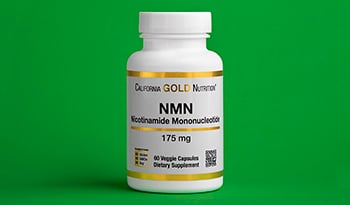D-riboza: upotrebe, prednosti, nuspojave, + više

Što je D-riboza?
Riboza, poznata i kao D-riboza, je jednostavna molekula šećera proizvedena u tijelu koja se također može konzumirati putem hrane i dodataka. D-riboza je prirodni dio DNK i RNK. Također je ključna komponenta adenozin trifosfata (ATP), glavnog izvora energije za tjelesne stanice. D-riboza igra važnu ulogu u proizvodnji energije, podržavajući kontrakciju mišića, prijenos živčanih impulsa, sintezu proteina, unutarstaničnu signalizaciju i mnoge druge biološke reakcije.
Dok tijelo prirodno proizvodi D-ribozu, suplementacija može podržati performanse vježbanja, zdravlje srca, funkciju mišića i još mnogo toga.
Kako uzimati D-ribozu?
D-riboza se može naći u određenoj hrani ili uzimati kao dodatak. Najčešće se dodaci D-riboze uzimaju u obliku praha pomiješanog s vodom. Međutim, D-riboza je također dostupna u obliku kapsula ili tableta.
Hrana koja prirodno sadrži D-ribozu uključuje:
- Zob
- Kvinoja
- Gljive
- Bademi
- Mliječni proizvodi, uključujući mlijeko, jogurt i švicarski sir
- Riba, poput lososa, inćuna, haringe i sardina
- Meso i perad
- Jaja
- Školjke
- Pivski kvasac
D-riboza u prahu mogu se konzumirati miješanjem s vodom i uzimati uz obrok. Alternativno, D-riboza se može uzimati prije vježbanja. Dosljednost je ključna za postizanje optimalnih rezultata i primjetno poboljšanje razine energije.
Prednosti D-riboze
Dopuna D-ribozom nudi niz potencijalnih zdravstvenih prednosti, uključujući:1—3
- Podrška zdravlju srca
- Olakšanje od simptoma fibromialgije i sindroma kroničnog umora
- Poboljšana funkcija mišića
- Brži oporavak vježbanja
Može povećati proizvodnju energije
Tijelo proizvodi manje ATP-a kako starimo, a pad ATP-a povezan je s zdravljem naših mitohondrija. Kada mitohondriji proizvode manje ATP-a, simptomi mogu uključivati umor i nedostatak energije, netoleranciju na vježbanje i slabost mišića. Dobra vijest je da postoje prirodne životne navike, prehrana i dodaci koji mogu podržati razinu ATP-a. D-riboza je glavni gradivni blok za ATP. Dok tijelo prirodno proizvodi D-ribozu, može se konzumirati i kao dodatak u obliku tableta ili praha.
Dodatni načini za podršku zdravlju mitohondrija uključuju jedenje hrane bogate antioksidansima poput borovnica, sjemenki nara i tamne čokolade, redovito vježbanje, davanje prioriteta sna, upravljanje stresom i dodatke prilagođene vašim zdravstvenim potrebama.
Iako su znanstveni dokazi koji podržavaju prednosti D-riboze ograničeni, neke studije sugeriraju da D-riboza može pomoći u povećanju proizvodnje energije povećanjem oporavka ATP-a kada je funkcija mitohondrija ugrožena.4
Može ubrzati oporavak vježbanja
D-riboza može smanjiti bol i pomoći mišićima da se brže oporave nakon vježbanja pomažući u vraćanju razine ATP-a u mišićima. Studije pokazuju da 15 grama D-riboze konzumirane prije i poslije vježbanja može smanjiti bol u mišićima i poboljšati oporavak oštećenja mišića.2 Osim D-riboze, prehrana prije i nakon treninga igra ključnu ulogu u oporavku mišića.
Prehrana prije treninga trebala bi se usredotočiti na lako probavljive ugljikohidrate zajedno s nekim proteinima za održivu energiju. Prehrana nakon treninga trebala bi se usredotočiti na proteine za oporavak mišića, zajedno s ugljikohidratima za vraćanje razine glikogena. Glikogen je glukoza pohranjena u mišićima i služi kao neposredni izvor energije za vježbanje i tjelesnu aktivnost. Dodatne hranjive tvari i dodaci koji mogu podržati oporavak od vježbanja uključuju proteinskih praha, omega-3 masnih kiselina, elektrolita, vitamina C, i vitamina D.
Može podržati zdravlje srca
D-riboza također može poboljšati zdravlje srca podržavajući proizvodnju ATP-a i rad srca. Stariji pregled studija otkrio je da D-riboza može poboljšati kvalitetu života i omogućiti ljudima s kongestivnim zatajenjem srca ili koronarnom bolešću da duže vježbaju s manje simptoma.5
Dodatni dodaci koji mogu podržati zdravlje srca uključuju omega-3 masne kiseline, magneziji CoQ10. Osim dodataka, prirodni lijekovi za zdravo srce uključuju pravilnu prehranu i zdrave životne navike. Dijeta cijele hrane koja uključuje obilje voća i povrća bogatog antioksidansima, kvalitetan san, upravljanje stresom i redovito kretanje, kao i izbjegavanje pušenja i konzumiranja alkohola, ključna je za podršku zdravlju srca.
Može ublažiti simptome fibromialgije
D-riboza može pomoći u smanjenju simptoma fibromialgije i sindroma kroničnog umora. Jedna mala, starija studija otkrila je da uzimanje 15 grama D-riboze pomoglo poboljšanju intenziteta boli, energije, mentalne jasnoće i sna kod onih sa sindromom kroničnog umora ili fibromijalgijom.3 Iako je potrebno više istraživanja kako bi se razumjele prednosti D-riboze za određene poremećaje boli i kronični umor, postojeća istraživanja obećavaju.
Doziranje
D-riboza se može uzimati u dnevnim dozama od 5 do 15 grama.4 Stručnjaci preporučuju podjelu doze tijekom dana kako bi se smanjile moguće nuspojave.
Je li dodatak D-riboze siguran?
Studije izvještavaju o malo ili nimalo štetnih nuspojava D-riboze. Ipak, potencijalne nuspojave mogu uključivati mučninu, proljev, nelagodu u želucu, glavobolju i nizak šećer u krvi.
Djeca i osobe koje su trudne ili doje trebaju izbjegavati uzimanje dodataka D-riboze zbog nedostatka istraživanja o njihovoj sigurnosti u tim populacijama.
Osobe s dijabetesom ili uzimaju lijekove za snižavanje šećera u krvi trebale bi izbjegavati D-ribozu zbog njenog potencijala za snižavanje šećera u krvi.
Na kraju, prestanite uzimati D-ribozu dva tjedna prije zakazane operacije. D-riboza može sniziti razinu šećera u krvi, što bi moglo ometati postoperativnu kontrolu šećera u krvi.
Potencijalne nuspojave
Nuspojave konzumiranja D-riboze u hrani ili dodacima rijetke su. Uzimanje do 10 grama D-riboze dnevno do osam tjedana općenito se smatra sigurnim.6 Uzimanje D-riboze kao dodatka može rezultirati sljedećim rijetkim nuspojavama:
- Proljev
- Nelagoda u želucu
- Mučnina
- Glavobolja
- Nizak šećer u krvi
Na što treba paziti pri odabiru dodatka D-riboze
Kada odaberete visokokvalitetni dodatak, potražite one koje su testirane od strane nezavisnih organizacija poput NSF, USP, BSCG ili ConsumerLab. Imajte na umu sljedeće prilikom odabira bilo kojeg dodatka - ne samo D-riboze - kako biste osigurali visoku kvalitetu i sigurnost:
- Bez nepotrebnih aditiva: Pročitajte popis sastojaka kako biste bili sigurni da dodatak ne sadrži umjetne boje, boje ili arome, punila, veziva, potencijalne alergene ili velike količine dodanog šećera.
- Kvaliteta i sigurnosne brtve: Dodatke treba zatvoriti odgovarajućom brtvom radi vaše sigurnosti. Ovi pečati osiguravaju da je dodatak testiran i zapečaćen od strane organizacija trećih strana poput NSF ili USP.
- GMP certifikat: GMP certifikat znači da tvrtka slijedi dobre proizvodne prakse. To uključuje poštivanje propisa, testiranje i revizije trećih strana te osiguravanje kvalitete i sigurnosti tijekom cijelog proizvodnog procesa.
Iako je odabir dodataka renomirane marke neophodan, kupnja vaših dodataka od renomiranog izvora kupovine također je ključna za osiguravanje da nisu krivotvoreni i nisu narušeni ili otvoreni. Ukratko, mjesto gdje kupujete dodatke važno je izbjegavati kupovinu lažnih dodataka.
Kada je u pitanju sigurna kupovina dodataka, iHerb je predan izravnoj suradnji s robnim markama kako bi osigurao da su svi njegovi proizvodi autentični, testirani treće strane radi osiguranja kvalitete i sigurni. iHerb nudi 45.000+ pouzdanih, visokokvalitetnih zdravstvenih i wellness proizvoda od 1.500 marki.
Za van
Podrška proizvodnji ATP-a i zdravlju mitohondrija neophodna je za optimalnu razinu energije i oporavak od vježbanja. Kako razina ATP-a prirodno opada s godinama, konzumiranje hrane bogate D-ribozom ili uzimanje dodataka D-riboze može podržati zdravlje mitohondrija. Ovdje kupujte dodatke D-riboze .
Reference:
- Shecterle LM, Terry KR, Sveti Cyr JA. Potencijalne kliničke prednosti D-riboze u ishemijskoj kardiovaskularnoj bolesti. Kureus. 2018; 10 (3).
- Cao W, Qiu J, Cai T, Yi L, Benardot D, Zou M. Učinak suplementacije D-riboze na odgođeni početak bolova u mišićima izazvanu pliometrijskom vježbom kod studenata. J Int Soc Sports Nutr. 2020; 17 (1): 1-9.
- Teitelbaum JE, Johnson C, Sveti Cyr J. Korištenje D-riboze u sindromu kroničnog umora i fibromijalgiji: pilot studija. Časopis za alternativnu i komplementarnu medicinu. 2006; 12 (9): 857-862.
- Mahoney DE, Hiebert JB, Thimmesch A i sur. Razumijevanje D-riboze i mitohondrijske funkcije. Adv Biosci Clin Med. 2018; 6 (1) :1.
- Omran H, McCarter D, St Cyr J, Lüderitz B. D-riboza pomaže pacijentima s kongestivnim zatajenjem srca. Exp Clin Cardiol. 2004; 9 (2): 117.
- Dodaci prehrani za vježbanje i atletske performanse - Informativni list zdravstvenih radnika. Pristupljeno 8. rujna 2025.
ODRICANJE OD ODGOVORNOSTI: Ovaj Wellness kutak nije namijenjen za pružanje dijagnoza...

















































































 Sadržaj
Sadržaj














